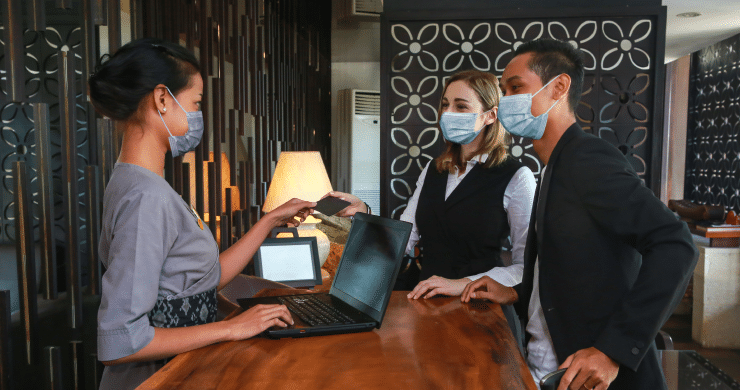Introduction
The hospitality industry has always prioritized guest satisfaction and comfort. In recent times, with the emergence of global health concerns, hygiene and safety considerations have become even more critical. Hotels, restaurants, and other hospitality establishments must implement robust measures to ensure the well-being of their guests and staff. This article explores the paramount importance of hygiene and safety considerations in the hospitality industry and the various measures that businesses are taking to uphold these standards.
- Health and Hygiene as Top Priorities
The COVID-19 pandemic highlighted the need for stringent health and hygiene protocols in the hospitality sector. Hygiene is now a top priority for guests, and they expect hotels and restaurants to go the extra mile to ensure their safety during their stay.
- Enhanced Cleaning and Sanitization Practices
Hospitality establishments are implementing enhanced cleaning and sanitization protocols throughout their premises. Commonly touched surfaces such as doorknobs, elevator buttons, and reception counters are frequently sanitized. Guest rooms undergo thorough cleaning and disinfection after each departure.
- Hand Hygiene Stations
Hotels and restaurants are placing hand hygiene stations at key locations throughout the property. These stations offer hand sanitizers and promote regular handwashing as an effective measure to prevent the spread of germs.
- Social Distancing Measures
To promote social distancing, establishments are rearranging furniture in common areas, dining spaces, and lobby areas. Floor markings and signage are used to remind guests to maintain appropriate distances from others.
- Contactless Services
Contactless services have gained prominence in the hospitality industry. Hotels are offering contactless check-ins and check-outs, digital room keys, and contactless payment options to minimize physical contact between guests and staff.
- Hygienic Dining Experiences
Restaurants are adopting single-use menus, disposable utensils, and wrapped cutlery to ensure a hygienic dining experience. Buffets have been replaced with a la carte options or served by staff behind protective barriers.
- Staff Training and Safety
Training staff on proper hygiene practices and safety protocols is paramount. Employees are equipped with personal protective equipment (PPE), and regular health checks are conducted to ensure the well-being of both staff and guests.
- Adequate Ventilation
Proper ventilation is essential to maintain air quality and minimize the risk of airborne transmission. Hospitality establishments are enhancing ventilation systems and encouraging open-air spaces where possible.
- Collaboration with Health Authorities
Hotels and restaurants are collaborating with health authorities and adhering to government guidelines to implement effective hygiene and safety measures. Regular updates from health agencies help establishments stay informed about best practices and evolving safety protocols.
- Transparent Communication
Transparent communication is crucial during these times. Hospitality businesses are proactively communicating their safety measures to guests through their websites, booking platforms, and pre-arrival emails, ensuring that guests feel confident about their stay.
Conclusion
In the post-pandemic world, hygiene and safety considerations have become integral to the hospitality industry. Guests expect hotels and restaurants to prioritize their well-being and have confidence in the establishments they choose to visit. Implementing robust cleaning, sanitization, and safety measures, along with contactless services and staff training, helps build trust with guests and ensures they have a safe and enjoyable experience during their stay. By continually monitoring and adapting to evolving health guidelines, the hospitality industry can remain at the forefront of promoting hygiene and safety, demonstrating its commitment to guest well-being.






